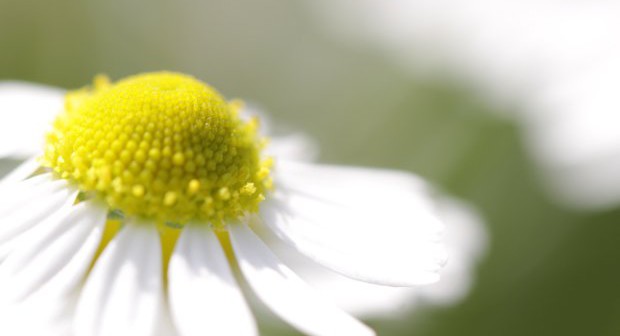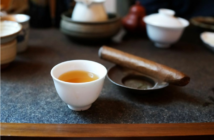Trivia
- The word “chamomile” comes from the ancient Greek chamaimelon, meaning “ground apple.” While it’s actually related to the daisy, it smells a little like apples.
- Chamomile has been used since ancient times. The Egyptians called it a cure for “ague” – a severe fever. It was sometimes even used to prevent nightmares!
- The Anglo-Saxons considered chamomile one of their nine sacred herbs, used to prevent disease and treat wounds and poisonings.
- In the Middle Ages, chamomile was strewn in banquet halls to freshen the air.
Tips and Tricks
- Try placing cooled chamomile tea bags over your eyes to reduce puffiness and dark circles.
- After shampooing, rinse your hair with cooled chamomile tea to bring out blonde highlights.
- Gargling with lukewarm chamomile tea can help relieve a sore throat.
Try It
Straight
- Pharaoh’s Chamomile, by The Taste of Tea
- Palace Gardens Chamomile, by Harney & Sons
- Egyptian Camomile, by Mark T. Wendell
- Nile Camomile Organic, by Capital Teas
Blended
- No. 67 Meadow, by Steven Smith Teamaker
- Chamomile Citrus, by Mighty Leaf
- Bravissimo by DAVIDsTEA
Bonus Trivia
- Chamomile may be the world’s most popular herbal remedy: It has strong soothing properties and helps reduce or prevent inflammation. As a result, it’s used in many calming tisanes, as well as in skin lotions and creams meant to reduce redness and puffiness.
- Really want to relax? Chamomile has often been associated with alcoholic drinks: the blossoms have been used to bitter beer, much like hops, and manzanilla sherry takes its name from the Spanish word for chamomile.
Bonus Tips and Tricks
- Use a chamomile compress to help a minor cut or abrasion heal faster. Just steep a plain chamomile tea bag in a mixture of 1/4 teaspoon of non-iodized salt and 8oz of water. After about five minutes, remove the bag and place it gently on the wound; let it rest there for about 10 minutes before removing and patting dry. Repeat as needed.




